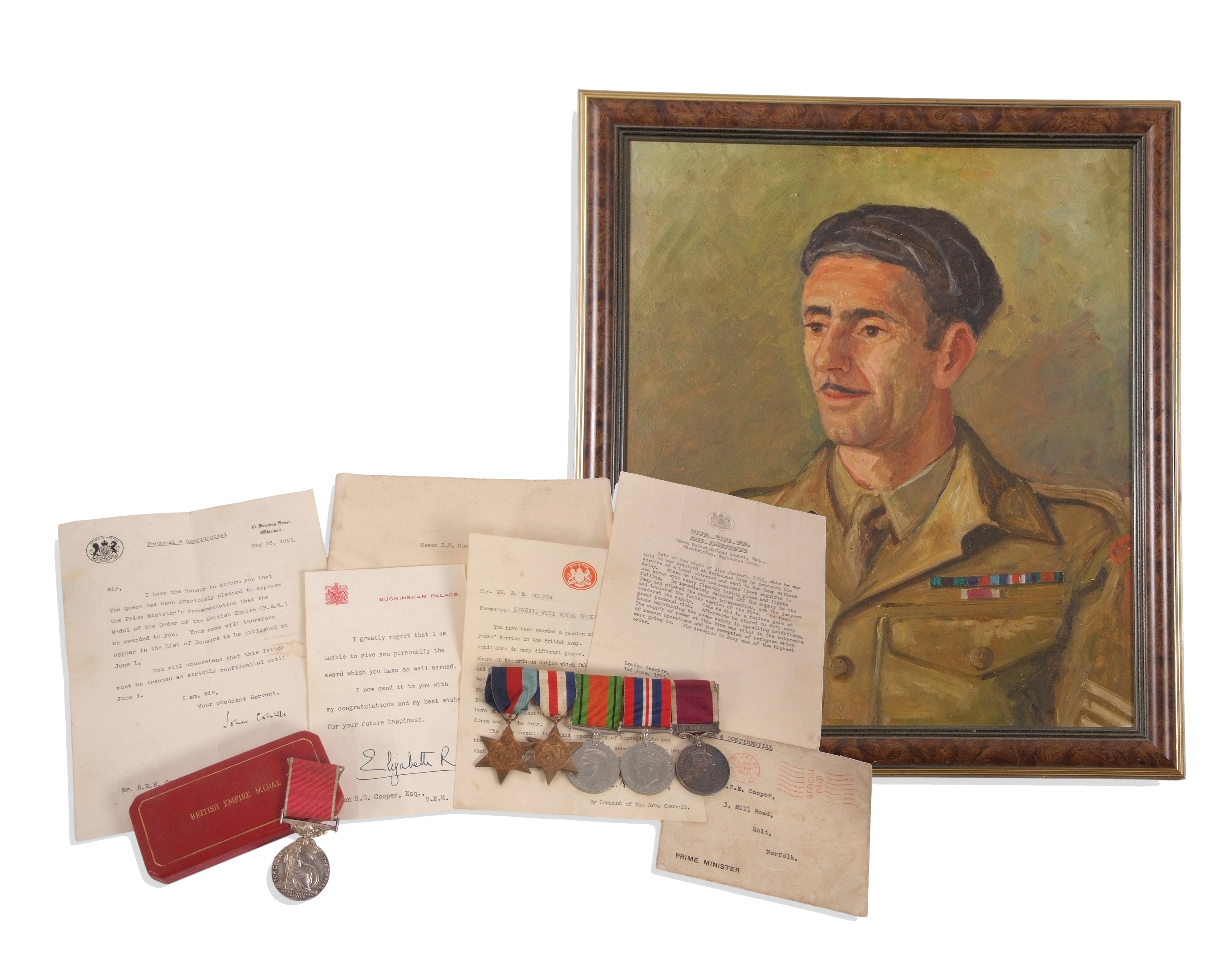

24/06/2023 General News
Medals given for bravery always attract interest amongst collectors, and none more so than when there is a powerful and relatable human story behind them, writes David Broom.
In Queen Elizabeth II’s Coronation honours list in 1953, there were 72 awards given to those who had shown conspicuous bravery during the awful floods which took place right across the east coast in January of that year.
Some of those heroes, such as the American serviceman Reis Leming who saved 27 men, women and children at Hunstanton, became famous. Others, such as Raven Robert Ryland Cooper, remained more anonymous – but his courage, and that of many like him, prevented the dreadful death toll from being still higher.
On 31st January 1953, a fatal combination of a depression off the east coast of Scotland whipping up hurricane force northerly winds and a peak spring tide, funnelled billions of gallons of water into the North Sea, creating a massive storm surge – in fact, a genuine tidal wave.
As this travelled south into the narrower part of the sea between England and the Netherlands, the wall of water grew even higher – more than two and a half metres above the already high spring tide level. When that wall of water hit land, coastal defences were no match for it.
Creating untold destruction in its wake, the human cost was huge. 100 people perished in Norfolk, with a further 207 victims across Lincolnshire, Suffolk and Essex. More than 250 fishermen and sailors were lost at sea. In the low-lying Netherlands, sea defences were swept away, and more than 1,800 people lost their lives.
Late on that fateful night, Raven Cooper, an electrician based at the Weybourne Camp, was informed that he was required there urgently. He procured the services of a local motorist to get him there quickly. On arrival, he found that the overhead lines were engulfed in sea spray, with heavy electrical flashing taking place and the lights failing.
In the eye of a furious gale, and at considerable risk to himself, Cooper switched off the supply to the camp and climbed the nearest intersection, cutting the electrical jumpers and isolating the faulty section of the line, before restoring the supply.
He then stayed on duty for many hours, maintaining the power supply in appalling conditions – a power supply which was vital to the ongoing rescue operations and the evacuation and reception of refugees which continued throughout the night.
It is difficult for us to imagine the courage required to clamber up electrical installations and carry out what would be hazardous repairs in benign conditions, in the midst of an overwhelming storm which claimed so many lives.
Cooper’s bravery was recognised with the award of a British Empire Medal in the Coronation honours list, with the citation declaring that ‘His devotion to duty was of the highest order’.
Sgt Cooper’s British Empire Medal, along with his citation, Downing Street notice of award letter and Buckingham Palace notification, goes under the hammer in Keys’ Fine Sale at the end of July, with a pre-sale estimate of £400-£600.
Also included in the collection are his 1939-1945 medal, the France and Germany Star, 1939-1945 Defence Medal, 1939-1945 British War Medal and Long Service and Good Conduct Medal, military pension letter, framed commendation for the Liberation of Norway 8th May 1945, and a portrait of the man himself.
This was a true Norfolk hero, and it is no surprise that this unique medal group is already eliciting high levels of interest from local historians and collectors.
Keys Fine Sale takes place on Wednesday 26th, Thursday 27th and Friday 28th July.